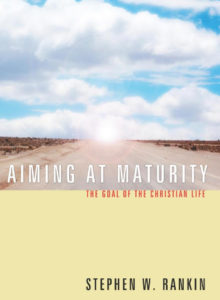 Aiming at Maturity: The Goal of the Christian Life
Aiming at Maturity: The Goal of the Christian Life
It seems that much of American Christianity has lost sight of the goal of growing to maturity in Christ. This loss of vision has had serious consequences for the quality of our witness and ministry. In Aiming at Maturity, Steven W. Rankin seeks to bring back into focus key qualities of spiritual maturity and summarizes important biblical passages to show the scriptural foundations that call for spiritual maturity. Rankin also addresses certain tendencies in popular Christian culture to reduce doctrinal truths to sound bites with the laudable but counterproductive goal to make doctrine memorable, therefore applicable. Thinking more expansively about certain key doctrines related to the work of Christ and the impact of grace contributes to growth toward maturity in a way that popular descriptions of these doctrines do not. Finally, Rankin also challenges readers to consider the important role of emotions in developing Christlike dispositions, which contribute toward producing the fruit of a mature Christian life. By looking at relevant modern research, Aiming at Maturity shows the inherent connection between thoughts and feelings that draw us closer to the actual biblical description of the heart.
A Reader Review: “”Aiming at Maturity: The Goal of the Christian Life” is a book that I’ve been waiting to read for a long time. It is a much-needed book in the life of the church for both lay and clergy for many reasons. First, Rankin presents all too necessary lessons in theology. This emphasis on theology, particularly for local churches, is long overdue. In describing complex theological ideas, Rankin is great to define the technical terms for the reader as well as offer an explanation in more familiar terms, using examples from his personal experience to which the reader can relate. Secondly, Rankin offers a very comprehensive view of salvation, as including justification and sanctification. I really appreciate this because, not only does it make sense in human experience, but it is also Biblical! Additionally, the common understanding of salvation in much of American Christianity is malnourished. Unfortunately, this effort to simplify the Gospel message does more harm than good in most cases. Aiming at Maturity serves to supplement the underemphasized aspects of the Christian life. Finally, I really appreciate Rankin’s humility. While he is not shy to acknowledge his own biases, tradition, and beliefs, he does so in a way that invites conversation. For church leaders, church members, and even for those that are estranged from the church, I highly recommend Aiming at Maturity as a text that can be very beneficial. Aiming at Maturity hits the bullseye–it’s time for the church to grow up!”
“Amid the wreck of things” | Christian History Magazine By Stephen Rankin
[Christian History originally published this article in Christian History Issue #104 in 2013]
Confessor-in-chief | Christian History Magazine By Stephen Rankin
[Christian History originally published this article in Christian History Issue #111 in 2014]
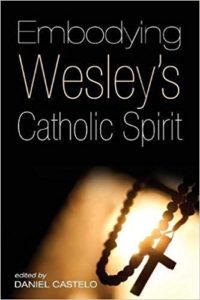 “John Calvin and John Wesley on Sanctification,” in Embodying Wesley’s Catholicity. (Eugene, OR, Pickwick, 2017.)
“John Calvin and John Wesley on Sanctification,” in Embodying Wesley’s Catholicity. (Eugene, OR, Pickwick, 2017.)
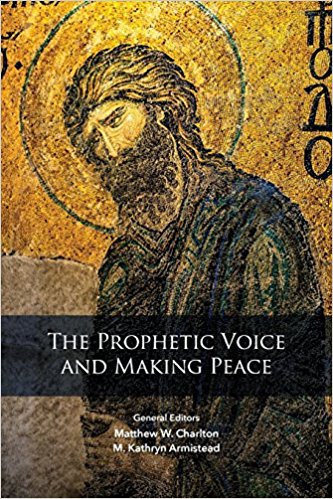 “A Particular Ministry in a Pluralistic Context” in The Prophetic Voice and Making Peace: Theological Reflections on United Methodist Collegiate Ministries. (Nashville: Abingdon Press, 2016)
“A Particular Ministry in a Pluralistic Context” in The Prophetic Voice and Making Peace: Theological Reflections on United Methodist Collegiate Ministries. (Nashville: Abingdon Press, 2016)
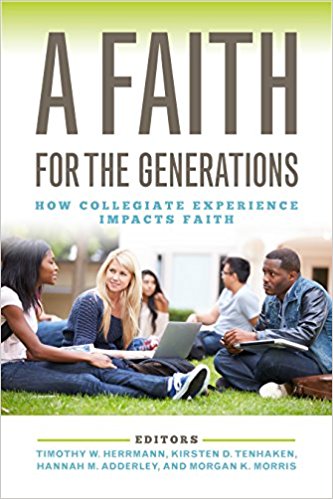 “What’s Wrong with ‘Meaning Making’ to Describe Faith? The Problem of Sharon Parks’ Kantian Assumptions for Student Development,” in Todd Ream… eds., A Faith for the Generations: How Collegiate Experience Impacts Faith, (Abilene, TX: Abilene Christian University Press, 2015).
“What’s Wrong with ‘Meaning Making’ to Describe Faith? The Problem of Sharon Parks’ Kantian Assumptions for Student Development,” in Todd Ream… eds., A Faith for the Generations: How Collegiate Experience Impacts Faith, (Abilene, TX: Abilene Christian University Press, 2015).
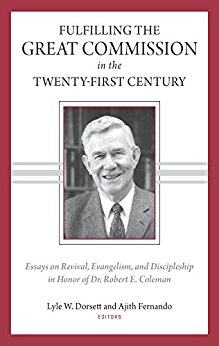 “And the Things You Have Heard from Me: Discipling Emerging Adults,” in Lyle Dorsett and Ajith Fernando, eds., Fulfilling the Great Commission: Essays in Honor of Dr. Robert Coleman (Franklin, TN: Seedbed Publishing, 2015).
“And the Things You Have Heard from Me: Discipling Emerging Adults,” in Lyle Dorsett and Ajith Fernando, eds., Fulfilling the Great Commission: Essays in Honor of Dr. Robert Coleman (Franklin, TN: Seedbed Publishing, 2015).
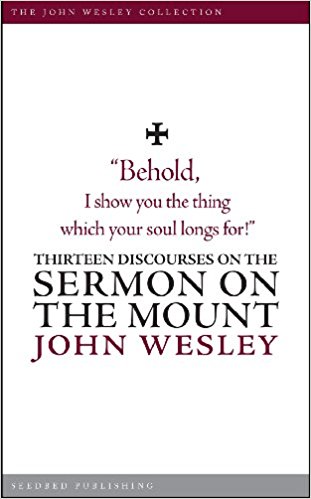 Introduction, Thirteen Discourses on the Sermon on the Mount, (Franklin, TN: Seedbed Publishing, 2014).
Introduction, Thirteen Discourses on the Sermon on the Mount, (Franklin, TN: Seedbed Publishing, 2014).
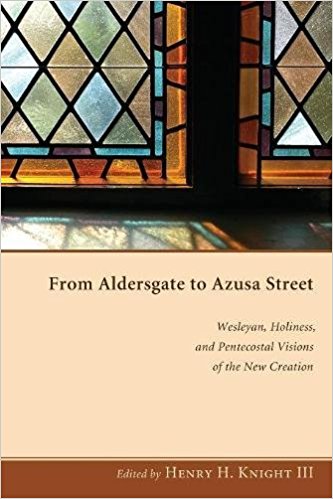 “The People Called Methodists” in Henry H. Knight, III, ed., From Aldersgate to Azusa Street: Wesleyan, Holiness and Pentecostal Visions of the New Creation (Eugene, OR: Pickwick Publications, 2010).
“The People Called Methodists” in Henry H. Knight, III, ed., From Aldersgate to Azusa Street: Wesleyan, Holiness and Pentecostal Visions of the New Creation (Eugene, OR: Pickwick Publications, 2010).
“An Affectional Epistemology” in Henry Knight, et. al., From Azusa to Aldersgate… (Eugene, OR: Pickwick Publications, 2010).
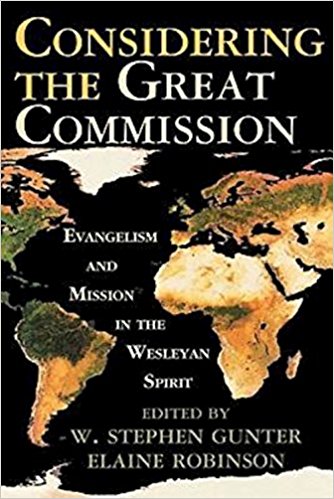 “DISCIPLE Bible Study and Transformed Lives” in W. Stephen Gunter and Elaine A. Robinson, eds., Considering the Great Commission: Toward a Wesleyan Praxis of Mission and Evangelism, (Nashville: Abingdon Press, 2005)
“DISCIPLE Bible Study and Transformed Lives” in W. Stephen Gunter and Elaine A. Robinson, eds., Considering the Great Commission: Toward a Wesleyan Praxis of Mission and Evangelism, (Nashville: Abingdon Press, 2005)
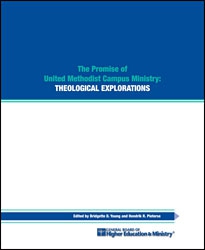 “How an Obscure Bible Verse Sparks Thinking about Our Work with Young People,” in Henk Pieterse, ed., The Promise of Campus Ministry, (Nashville: General Board of Higher Education and Ministry, 2010).
“How an Obscure Bible Verse Sparks Thinking about Our Work with Young People,” in Henk Pieterse, ed., The Promise of Campus Ministry, (Nashville: General Board of Higher Education and Ministry, 2010).



Dear Rev. Rankin
I will begin by saying, like many of the people responding to your article, ‘Judicial Council Proves We’re Already in Schism’, that I have been a Methodist/United Methodist my entire life … and at age 67, know I will always be a United Methodist regardless of what happens in the 2019 General Conference. My parents were always active in the church. After my father received a call to the ministry in his early thirties, my parents, together, decided that Dad should go into the ministry. So in the mid 60’s, I along with my 3 siblings became PKs. My parents were also always very actively involved in peace and justice issues. With Dad being in college and seminary during the late sixties and early seventies, the entire family had lots of opportunities to get involved in putting our faith into action around these types of issues.
I trained for and became a middle school/ Junior High mathematics teacher. I am sure that my parents’ work/beliefs shaped me and impacted how I worked with the students and how I conducted myself throughout my life. I write all of this as a background to give you a sense of how I came to my feelings that I am going to share with you in response to your article. I am sharing these thoughts, not to change your views, but hopefully to give you a way to see that there is and always will be a wide range of feelings in regard to how individuals look at human sexuality, along with a wide range of other issues, in relation to and regardless of their denominational beliefs in this area.
As a middle school teacher, through the years I had 5th, 6th, 7th and 8th grade students who I sensed, without ever having a discussion with the students about their sexual orientation, were LGBTQ students. These students were all children of God. God loves all children. God is the judge and asks us not to judge. I cannot believe and never have believed that children of this age would make a conscious choice to one day say that they were choosing to be gay and put themselves in the position of being bullied and scorned by their peers and possibly even rejected by their own families. They were simply living out who they were made to be as children of God. Who of any of us were given the right to be the judge that they should not be given be able to be married in the United Methodist Church?
My hope and prayer is that as United Methodist, on this issue and on many other issues, we can look at Christ’s life and teaching and acknowledge that we are to love, nurture and be accepting of all of God’s children. So as the church approaches the 2019 General Conference, I am looking for a miracle or a divine intervention. As you might suspect, I am one that thinks the One Church Plan Way Forward isn’t accepting enough of our fellow LGBTQ Christians. You talked about doctrines and structures that define the church that we should use to define our identity and mission. But who gets to make and define these doctrines and structures? Is there ever a time and process for these doctrines and structures to evolve and change? Do individuals ever get the opportunity to disagree without being judged? Marriage and divorce certainly seems to me to be an example of an area that has evolved, and an area where the church has changed their doctrines in its regard. My hope is that we can all stop judging, leave that up to God, and truly be a church of open doors, open hearts and open minds and find a way to move forward together without a need for there to be any losers in United Methodist churches. Our defining doctrine that impacts all structures of the United Methodist Church should always be to love God and love all people without condition or judgment.
Thank you for allowing comments. This particular topic seemed to compel me to write a response.
God’s blessings,
Deborah Cheek
dcanddc@frontier.com
Thank you, Deborah, for sharing your thoughts. I will respond more fully via email, but here make only two responses. First, who gets to decide an organization’s beliefs and values (any organization, religious or otherwise) is as much a responsibility as it is a matter of “who gets to.” Every organization has a vision of a good that it seeks to instill in its members and offer to others. The same is true with the church. Sticking with that vision takes accountability. It is not a matter of who gets to decide. It is a matter of exercising a terrible and awesome responsibility to help people stay faithful to a vision. As you make clear in your comment, you believe the One Church Plan does not go far enough. I would hazard the guess that, in a United Methodism that matches your views, the accountability pressure would run the opposite direction. In that case, the leaders who gets to make decisions about same sex marriage would require traditionalists to do same sex weddings. The situation would be reversed from what it is now.
Secondly, in your description of observing children, you note that their emerging sexual interests are clearly not chosen. I completely agree. But then you draw a conclusion – God made them that way. That is a big step that hides a number of necessary questions. I’ll bet that you noticed inclinations in other kids that concerned you. How did you conclude that those inclinations were not part of how God made them? In your description, then, are hidden moral deliberations that need to be brought out into the light of day and examined on their own. All of us – traditionalist, progressive, moderate (whatever label) – are responsible to examine and test our moral deliberations.